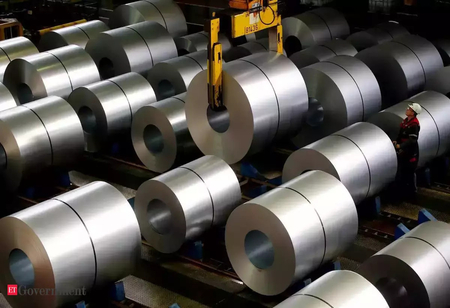JSL’s Abhyuday Jindal: A New Stainless Steel Policy To Likely To Be Launched Next Year
 A top official involved in the matter told Mint that the steel ministry is in the final stages of negotiations to officially launch the National Stainless Steel Policy next year. “We are constantly in talks with the ministry, and the process of officially launching the National Stainless Steel Policy is in its final stage," Abhyuday Jindal, managing director of Jindal Stainless Limited (JSL) said on the on the sidelines of a startup summit organized by the Indian Chamber of Commerce.
A top official involved in the matter told Mint that the steel ministry is in the final stages of negotiations to officially launch the National Stainless Steel Policy next year. “We are constantly in talks with the ministry, and the process of officially launching the National Stainless Steel Policy is in its final stage," Abhyuday Jindal, managing director of Jindal Stainless Limited (JSL) said on the on the sidelines of a startup summit organized by the Indian Chamber of Commerce.
He added, “The policy will be officially launched by next year and will increase the domestic capacity to 10 million tonnes (MT) initially. That is kind of the world average and stainless steel is approximately 3% of steel output."
Currently, India manufactures approximately 6.6 MT of stainless steel per year. This is consistent with the rate at which cheap Chinese imports are being poured into the local market, generating severe margin erosion for domestic enterprises, who are expecting the government to intervene significantly.
"The challenge [for companies now] is the dumping from China." It is growing uncontrollably every month and is harming the entire business," Jindal remarked. "The MSME players are suffering more than the big players." China is essentially selling it for cheaper than the price in India and China."
In response to a question regarding bidding for Vedanta mines that Anil Agarwal's business is auctioning off, Jindal stated that JSL has no interest in doing so. He stated that the stainless steel manufacturer's Indonesia plant expansion plan is on track and will be finished by May 2024.
According to Jindal, the company is also in the process of decarbonizing as it continues to focus on shifting to renewable energy and achieving carbon neutral by 2050. "We've already invested in almost 300 megawatts of renewable power and whatever expansion we're doing, we're only focused on renewable energy," he said. "We have a net-zero carbon target of 2050."







